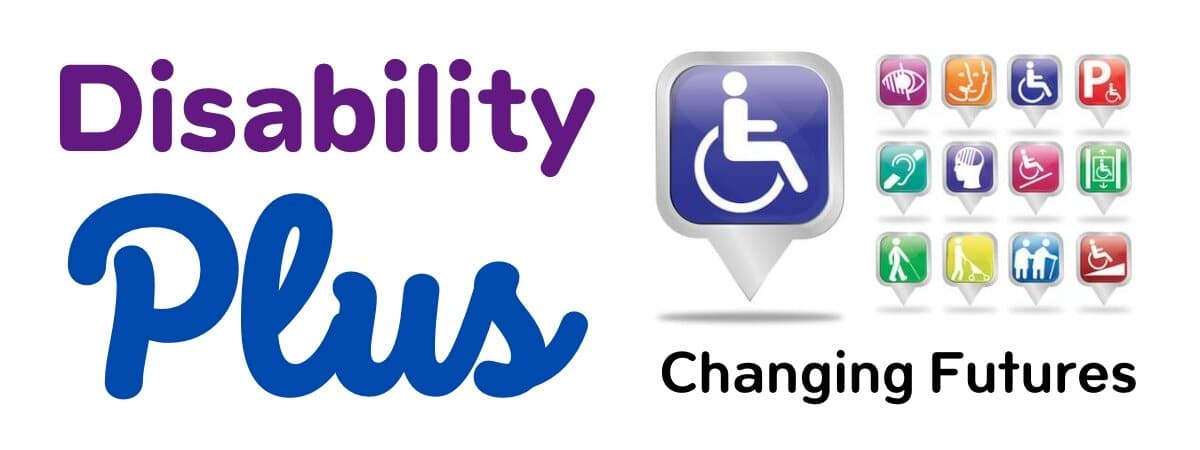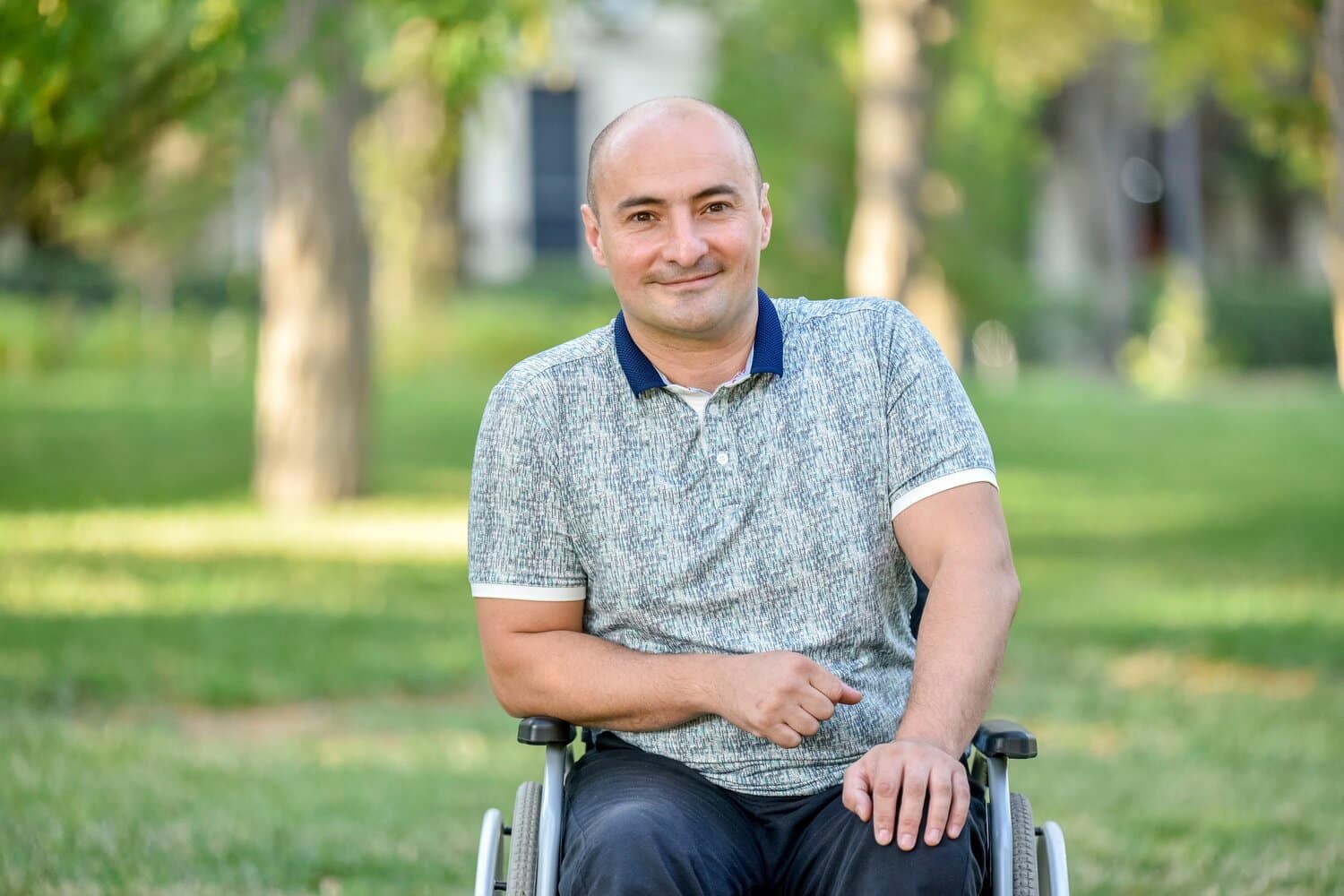Specialist Mental Health Counselling for ASD
Ready for Mental Health Support From an Autistic Perspective?
Access specialist mental health counselling for ASD online. Our team of highly qualified autistic therapists provides personalised support for a wide range of needs, from anxiety and communication challenges to navigating life transitions. Connect with a therapist who gets it from anywhere in the country.
"Autistic Client, Therapist with ASD"
Our autistic therapists offer more than just clinical expertise – they offer lived experience, enabling them to truly understand and support your journey.
Supporting all Types of Autism
We support autistic individuals 16 and over with any diagnoses and needs. Whether you’re seeking help with anxiety, social skills, sensory sensitivities, or life transitions, our therapists are here to help.
Specialist ASD Counselling
We provide online autism therapy with specialist therapists who are not only highly qualified but also autistic themselves. This ensures deep understanding and convenient access to the best support wherever you are.
Ask us a Question
What Clients Say about us
Counselling Fees
Self-Refer Today
Organisations Referral

Our ASD counselling services are tailored to your individual needs.
Understanding and accepting your autism: We’ll help you explore your identity, build self-esteem, and embrace your unique strengths and perspectives. This might involve: * Processing a recent diagnosis. * Understanding your sensory sensitivities. * Identifying and appreciating your autistic traits.
Improving social communication: We’ll help you navigate social situations, develop communication skills, and build meaningful connections. This might involve understanding social cues and nonverbal communication. * Practicing conversation skills and social interactions. * Building confidence in social settings.
Managing emotions and sensory overload: We’ll provide strategies for coping with anxiety, meltdowns, shutdowns, and sensory overload. This could include: * Developing coping mechanisms for overwhelming situations. * Learning emotional regulation techniques. * Exploring sensory strategies to manage your environment.
Developing fulfilling relationships: We’ll support you in fostering healthy relationships with family, friends, and romantic partners. This could include: * Communicating your needs effectively. * Setting boundaries and navigating social expectations. * Building intimacy and understanding in relationships.
Achieving your goals and living authentically: We’ll empower you to pursue your passions and live a fulfilling life that aligns with your values and aspirations. This might involve: * Identifying your strengths and interests. * Overcoming challenges and pursuing your goals. * Advocating for your needs and accommodations.
Coping with stigma, discrimination, and ableism: We’ll provide a safe space to process your experiences and develop strategies for self-advocacy. This could include: * Addressing internalised ableism. * Developing assertiveness skills. * Finding ways to challenge stigma and discrimination.
Real Stories, Real Change: What Our Clients Say
Don’t just take our word for it. Hear from autistic adults who have experienced the transformative power of our specialised counselling services. These real-life stories showcase the diverse ways our autistic therapists have helped individuals navigate challenges, embrace their strengths, and live more fulfilling lives.
Before, I felt like no therapist really got me. But my counsellor here is autistic too, and it’s amazing! She understand my sensory issues and how I communicate. I finally feel heard.
Making friends is hard for me. Matthew helped me learn social skills and how to understand people better. I even joined a club, and I’m starting to make friends.
The world can be too loud and bright for me. Matthew helped me find ways to manage my sensory issues and feel calmer.
My family didn’t understand my autism, and we argued a lot. Sue helped me communicate better. Now, we get along much better, and I feel closer to them.
I used to have meltdowns all the time, and I felt so ashamed. My counsellor helped me understand why they happen and taught me ways to cope. Now I feel more in control.
I always felt different and not good enough.Sue helped me see my strengths and accept myself for who I am. Now I feel more confident and happy.
My job was so stressful, and I was close to quitting. Liz helped me with work strategies and how to talk to my boss.
I never knew what I wanted to do with my life. Matthew helped me find my passion for art. I’m taking classes now.

Session Fees/Pricing
We believe everyone should have access to ASD mental health counselling. That’s why we offer reduced rates to the public, with sessions starting at just £50 for 50 minutes.
Our Fees:
Initial Session: £50
Following Sessions: £180 for every three sessions after that.

Benefits
Investing in your mental health is an investment in yourself.
While we don’t offer free NHS sessions, our specialist autism therapy provides unique value to experienced autistic therapists who genuinely understand your needs.
If you’re seeking support without the wait, our self-pay option allows you to begin your journey immediately.

Professional Referrals
We proudly collaborate with:
- Employment Support Companies
- GPs
- Mental Health Providers
- Schools & Universities
- Charities
And many more Professionals & Organisations to ensure Comprehensive Care for our Clients.
Self-Refer
Self-Refer
Referrals
Our Posts


Autism & Mental Health?
Autistic Burnout?
Feeling overwhelmed? Exhausted? Like you’re constantly running on empty, even after resting? If you’re autistic, you might be experiencing autistic burnout.
It’s more than just everyday tiredness. Autistic burnout is a state of intense physical, mental, and emotional exhaustion that can make even simple tasks feel impossible. It often stems from the constant effort of navigating a world that wasn’t designed for autistic needs.
Think of it like this: you’re constantly adapting, masking your autistic traits, and processing sensory information that can feel overwhelming. It’s like your brain is working overtime, with no chance to switch off truly.
This can lead to a range of challenges, including:
- Intense fatigue: Feeling drained even after sleeping.
- Loss of skills: Struggling with tasks you used to find easy.
- Increased sensory sensitivity: Feeling overwhelmed by noise, light, or social situations.
- Withdrawal and isolation: Wanting to avoid social interaction and spend more time alone.
- Emotional dysregulation: Experiencing more frequent meltdowns or shutdowns.
- Heightened anxiety and depression: Feeling more anxious or depressed than usual.If this sounds familiar, know that you’re not alone. Autistic burnout is a common experience, and there are ways to cope and recover.
Specialist mental health counselling for ASD with a Therapist who is also autistic can support you with Autistic burnout.
CLICK HERE TO SELF-REFER FOR SPECIALIST MENTAL HEALTH ASD COUNSELLING TODAY
Sensory Overload?
Ever feel like your brain is stuck on overdrive, bombarded by a symphony of sights, sounds, smells, and sensations? That’s sensory overload, a common experience for many autistic people.
Imagine this: you’re in a busy coffee shop. The barista is steaming milk, conversations overlap, music plays, and the aroma of coffee beans fills the air. For many, this might be a bustling but manageable scene. But for someone with heightened sensory sensitivities, it can be an overwhelming assault on the senses.
It’s like having the volume turned up on everything around you. Lights seem brighter, sound louder, texture rougher, and smell more pungent. Your brain struggles to process this flood of information, leading to feelings of anxiety, stress, and even physical discomfort.
Sensory overload can manifest in different ways. Some might feel restless and agitated, while others might shut down and withdraw. You might experience:
- Difficulty focusing: Competing sensory input pulls Your attention in multiple directions.
- Irritability and frustration: Feeling easily overwhelmed and on edge.
- Anxiety and panic: A sense of rising fear and a need to escape the situation.
- Physical discomfort: Headaches, nausea, or even pain.
- Meltdowns or shutdowns: Intense emotional responses or withdrawal as a way to cope.
If this resonates with you, know that you’re not alone. Many autistic individuals experience sensory overload. Recognising your triggers and developing coping strategies can make a huge difference.
Specialist mental health counselling for ASD with a Therapist who is also autistic can support you with Autistic burnout.
CLICK HERE to self-refer to specialist mental health counselling for ASD today
Difficulties with Change and Uncertainty?
Does the thought of unexpected changes send shivers down your spine? Do you thrive on routine and predictability? Many autistic individuals experience heightened anxiety when faced with change and uncertainty.
Imagine your usual route to work suddenly closing due to construction. This might be a minor inconvenience for some, but it can be easily solved with a quick detour. However, for someone who relies on routine and predictability, this disruption can trigger significant stress and anxiety.
It’s not about being “stubborn” or “inflexible.” For many autistic people, the world can feel unpredictable and overwhelming. Routines and familiar patterns provide a sense of safety and control. When those routines are disrupted, it can feel like the ground is shifting beneath your feet.
This can lead to:
- Increased anxiety: Feeling worried, stressed, or even panicked about the change.
- Resistance to new things: Avoiding new situations or experiences.
- Difficulty with transitions: Struggling to adapt to changes in routine or environment.
- Meltdowns or shutdowns: Intense emotional responses when faced with unexpected changes.
- Rigidity in thinking: Finding it hard to consider alternative options or solutions.
If this resonates with you, know that you’re not alone. Many autistic individuals find comfort in predictability and struggle with unexpected changes.
Specialist mental health counselling for ASD with a Therapist who is also autistic can support you with Autistic burnout.
CLICK HERE to self-refer to specialist mental health counselling for ASD today
Social Anxiety?
Do parties and social gatherings fill you with dread? Do you find small talk excruciating or worry constantly about what others think of you? If so, you’re not alone. Many autistic people experience social anxiety.
Imagine this: you’re at a friend’s birthday party. Music blares, people chatter excitedly, and laughter fills the room. While others seem to navigate conversations and social cues effortlessly, you might feel lost and overwhelmed.
Social anxiety in autism can stem from various factors, including:
- Difficulty understanding social cues: It can be challenging to interpret facial expressions, body language, and subtle social nuances.
- Sensory sensitivities: Loud noises, bright lights, and crowded spaces can amplify anxiety and make social situations feel overwhelming.
- Fear of saying the wrong thing: Worries about social faux pas or misinterpretations can lead to anxiety and avoidance.
- Past negative experiences: Social rejection, bullying, or feeling misunderstood can contribute to social anxiety.
- Avoidance of social situations: Declining invitations, leaving gatherings early, or isolating oneself.
- Physical symptoms: Increased heart rate, sweating, trembling, or nausea in social settings.
- Negative thoughts: Worrying about being judged, rejected, or embarrassed.
- Difficulty making and maintaining friendships: Struggling to connect with others due to social anxiety.
CLICK HERE to self-refer to specialist mental health counselling for ASD today.
Emotional Regulation Challenges?
Ever feel like your emotions are a rollercoaster you can’t get off? Are you flipping between joy, anger, frustration, or sadness in the blink of an eye? You’re not alone. Many autistic individuals experience challenges with emotional regulation.
It’s not about being “overly sensitive” or “dramatic.” For many autistic people, emotions can be experienced more intensely and last longer. Identifying, understanding, and regulating these emotions effectively can be challenging.
This can lead to:
- Meltdowns or shutdowns: Intense emotional outbursts or periods of withdrawal as a way to cope with overwhelming feelings.
CLICK HERE to self-refer to specialist mental health counselling for ASD today
Trauma and PTSD?
Have you experienced a past event that continues to haunt your present? Do certain situations, sounds, or sensations trigger intense fear, anxiety, or flashbacks? You might be dealing with trauma and post-traumatic stress disorder (PTSD).
Imagine this: a seemingly harmless comment triggers a flood of memories from a past bullying experience. Your heart races, your palms sweat, and you feel a sense of overwhelming fear, as if the event is happening all over again. That’s the power of trauma.
For autistic individuals, trauma can be particularly complex. Sensory sensitivities, social challenges, and difficulties with communication can increase vulnerability to traumatic experiences.
This can lead to:
- Intrusive thoughts and memories: Distressing flashbacks, nightmares, or unwanted thoughts related to the traumatic event.
- Avoidance: Staying away from places, people, or situations that remind you of the trauma.
- Negative thoughts and feelings: Experiencing fear, guilt, shame, or difficulty trusting others.
- Hyperarousal: Feeling constantly on edge, easily startled, or having trouble sleeping.
- Changes in behaviour: Increased irritability, difficulty concentrating, or engaging in risky behaviours.
If you’re struggling with trauma and PTSD, it’s crucial to seek support. Trauma-informed therapy can help you process your experiences, develop coping mechanisms, and reclaim a sense of safety and control.
CLICK HERE to self-refer to specialist mental health counselling for ASD today
Relationships?
Do you crave connection but find relationships confusing and exhausting? Do you struggle to understand social cues, communicate your needs effectively, or maintain lasting bonds? You’re not alone. Many autistic individuals face unique challenges in navigating relationships.
Imagine this: you’re on a date, and the conversation feels strained. You’re unsure how to interpret your date’s body language, and your attempts at humour fall flat. While others seem to navigate social dynamics effortlessly, you might feel lost and discouraged.
Relationships can be complex for anyone, but for autistic individuals, certain aspects can be particularly challenging:
- Social communication: Understanding social cues, interpreting nonverbal communication, and engaging in reciprocal conversations require extra effort.
- Sensory sensitivities: Sensory overload in social situations can make connecting and enjoying time with others difficult.
- Emotional expression: Expressing and understanding emotions in a way that resonates with neurotypical individuals can be challenging.
- Differences in interests and communication styles: Finding common ground and navigating differences can require patience and understanding.
- Maintaining friendships: The social demands of friendships can feel overwhelming, leading to difficulties initiating and sustaining connections.
If this resonates with you, know that you’re not alone. Many autistic individuals navigate similar challenges in relationships.
CLICK HERE to self-refer to specialist mental health counselling for ASD today
Employment?
Does the thought of job interviews make your heart race? Do you struggle to navigate workplace politics, meet unspoken expectations, or fit in with neurotypical colleagues? You’re not alone. Many autistic individuals face unique challenges in the workplace.
Imagine you’re in a meeting, and your boss asks for your opinion. While others confidently share their ideas, you might freeze up, unsure how to articulate your thoughts in a way that will be well-received.
The workplace can be a minefield of social expectations and unwritten rules. For autistic individuals, certain aspects can be particularly challenging:
- Social communication: Understanding workplace dynamics, navigating office politics, and interpreting nonverbal cues can be difficult.
- Sensory sensitivities: Open-plan offices, fluorescent lights, and constant background noise can create sensory overload and make it difficult to focus.
- Difficulties with change and uncertainty: Unexpected changes in routine, last-minute deadlines, or shifting priorities can trigger anxiety and stress.
- Masking: Feeling pressure to suppress autistic traits to fit in can lead to exhaustion and burnout.
- Disclosure: Deciding whether or not to disclose your autism diagnosis to employers can be a complex and stressful decision.
If this resonates with you, know that you’re not alone. Many autistic individuals navigate similar challenges in the workplace.
CLICK HERE to self-refer to specialist mental health counselling for ASD today
Support groups
If you would like support from a online community click below: this is not run or organised by DisabilityPlus.

Specialist ASD, Mental Health Counselling
Ready for Mental Health Support From an Autistic Perspective?
Access specialist ASD mental health counselling for autistic adults online. Our team of highly qualified autistic therapists provides personalised support for a wide range of needs, from anxiety and communication challenges to navigating life transitions. Connect with a therapist who gets it from anywhere in the country.
Autistic Client, Therapist with ASD"
Access specialist mental health counselling for autistic adults online. Our team of highly qualified autistic therapists provides personalised support for a wide range of needs, from anxiety and communication challenges to navigating life transitions. Connect with a therapist who gets it from anywhere in the country.
Supporting all Types of Autism
We support autistic individuals 16 and over with any diagnoses and needs. Whether you’re seeking help with anxiety, social skills, sensory sensitivities, or life transitions, our therapists are here to help.
Specialist ASD Counselling
We provide online autism therapy with specialist therapists who are not only highly qualified but also autistic themselves. This ensures deep understanding and convenient access to the best support wherever you are.
Ask us a Question
What Clients Say about us
Counselling Fees
Self-Refer Today

Our ASD counselling services are tailored to your individual needs.
Understanding and accepting your autism: We’ll help you explore your identity, build self-esteem, and embrace your unique strengths and perspectives. This might involve: * Processing a recent diagnosis. * Understanding your sensory sensitivities. * Identifying and appreciating your autistic traits.
Achieving your goals and living authentically: We’ll empower you to pursue your passions and live a fulfilling life that aligns with your values and aspirations. This might involve: * Identifying your strengths and interests. * Overcoming challenges and pursuing your goals. * Advocating for your needs and accommodations.
Coping with stigma, discrimination, and ableism: We’ll provide a safe space to process your experiences and develop strategies for self-advocacy. This could include: * Addressing internalised ableism. * Developing assertiveness skills. * Finding ways to challenge stigma and discrimination.
Overcome Challenges and Live a Fulfilling Life with ASD Support
Improving social communication: We’ll help you navigate social situations, develop communication skills, and build meaningful connections. This might involve understanding social cues and nonverbal communication. * Practicing conversation skills and social interactions. * Building confidence in social settings.
Managing emotions and sensory overload: We’ll provide strategies for coping with anxiety, meltdowns, shutdowns, and sensory overload. This could include: * Developing coping mechanisms for overwhelming situations. * Learning emotional regulation techniques. * Exploring sensory strategies to manage your environment.
Developing fulfilling relationships: We’ll support you in fostering healthy relationships with family, friends, and romantic partners. This could include: * Communicating your needs effectively. * Setting boundaries and navigating social expectations. * Building intimacy and understanding in relationships.


Session Fees/Pricing
We believe everyone should have access to counselling. That’s why we offer reduced rates to the public, with sessions starting at just £50 for 50 minutes.
Our Fees:
Initial Session: £50
Following Sessions: £180 for every three sessions after that.

Benefits
Investing in your mental health is an investment in yourself.
While we don’t offer free NHS sessions, our specialist autism therapy provides unique value to experienced autistic therapists who genuinely understand your needs.
If you’re seeking support without the wait, our self-pay option allows you to begin your journey immediately.

Real Stories, Real Change: What Our Clients Say
Don’t just take our word for it.
Hear from autistic adults who have experienced the transformative power of our specialised counselling services.
These real-life stories showcase the diverse ways our autistic therapists have helped individuals navigate challenges, embrace their strengths, and live more fulfilling lives.
Before, I felt like no therapist really got me. But my counsellor here is autistic too, and it’s amazing! She understand my sensory issues and how I communicate. I finally feel heard.
Making friends is hard for me. Matthew helped me learn social skills and how to understand people better. I even joined a club, and I’m starting to make friends.
The world can be too loud and bright for me. Matthew helped me find ways to manage my sensory issues and feel calmer.
My family didn’t understand my autism, and we argued a lot. Sue helped me communicate better. Now, we get along much better, and I feel closer to them.
I used to have meltdowns all the time, and I felt so ashamed. My counsellor helped me understand why they happen and taught me ways to cope. Now I feel more in control.
I always felt different and not good enough.Sue helped me see my strengths and accept myself for who I am. Now I feel more confident and happy.
My job was so stressful, and I was close to quitting. Liz helped me with work strategies and how to talk to my boss.
I never knew what I wanted to do with my life. Matthew helped me find my passion for art. I’m taking classes now.
Mental Health with Autism
While anyone can experience mental health challenges, autistic individuals often face unique stressors and barriers that significantly impact their well-being.
It’s crucial to recognise that their mental health needs are distinct from those of the general population and require specialised support and understanding from therapists who are familiar with the autistic experience.
Difficulties with Change and Uncertainty?
Does the thought of unexpected changes send shivers down your spine? Do you thrive on routine and predictability? Many autistic individuals experience heightened anxiety when faced with change and uncertainty.
Imagine your usual route to work suddenly closing due to construction. This might be a minor inconvenience for some, but it can be easily solved with a quick detour. However, for someone who relies on routine and predictability, this disruption can trigger significant stress and anxiety.
It’s not about being “stubborn” or “inflexible.” For many autistic people, the world can feel unpredictable and overwhelming. Routines and familiar patterns provide a sense of safety and control. When those routines are disrupted, it can feel like the ground is shifting beneath your feet.
This can lead to:
- Increased anxiety: Feeling worried, stressed, or even panicked about the change.
- Resistance to new things: Avoiding new situations or experiences.
- Difficulty with transitions: Struggling to adapt to changes in routine or environment.
- Meltdowns or shutdowns: Intense emotional responses when faced with unexpected changes.
- Rigidity in thinking: Finding it hard to consider alternative options or solutions.
If this resonates with you, know that you’re not alone. Many autistic individuals find comfort in predictability and struggle with unexpected changes.
Specialist mental health counselling for ASD with a Therapist who is also autistic can support you with Autistic burnout.
CLICK HERE to self-refer to specialist mental health counselling for ASD today
Sensory Overload?
Ever feel like your brain is stuck on overdrive, bombarded by a symphony of sights, sounds, smells, and sensations? That’s sensory overload, a common experience for many autistic people.
Imagine this: you’re in a busy coffee shop. The barista is steaming milk, conversations overlap, music plays, and the aroma of coffee beans fills the air. For many, this might be a bustling but manageable scene. But for someone with heightened sensory sensitivities, it can be an overwhelming assault on the senses.
It’s like having the volume turned up on everything around you. Lights seem brighter, sound louder, texture rougher, and smell more pungent. Your brain struggles to process this flood of information, leading to feelings of anxiety, stress, and even physical discomfort.
Sensory overload can manifest in different ways. Some might feel restless and agitated, while others might shut down and withdraw. You might experience:
- Difficulty focusing: Competing sensory input pulls Your attention in multiple directions.
- Irritability and frustration: Feeling easily overwhelmed and on edge.
- Anxiety and panic: A sense of rising fear and a need to escape the situation.
- Physical discomfort: Headaches, nausea, or even pain.
- Meltdowns or shutdowns: Intense emotional responses or withdrawal as a way to cope.
If this resonates with you, know that you’re not alone. Many autistic individuals experience sensory overload. Recognising your triggers and developing coping strategies can make a huge difference.
Specialist mental health counselling for ASD with a Therapist who is also autistic can support you with Autistic burnout.
CLICK HERE to self-refer to specialist mental health counselling for ASD today
Autistic Burnout?
Feeling overwhelmed? Exhausted? Like you’re constantly running on empty, even after resting? If you’re autistic, you might be experiencing autistic burnout.
It’s more than just everyday tiredness. Autistic burnout is a state of intense physical, mental, and emotional exhaustion that can make even simple tasks feel impossible. It often stems from the constant effort of navigating a world that wasn’t designed for autistic needs.
Think of it like this: you’re constantly adapting, masking your autistic traits, and processing sensory information that can feel overwhelming. It’s like your brain is working overtime, with no chance to switch off truly.
This can lead to a range of challenges, including:
- Intense fatigue: Feeling drained even after sleeping.
- Loss of skills: Struggling with tasks you used to find easy.
- Increased sensory sensitivity: Feeling overwhelmed by noise, light, or social situations.
- Withdrawal and isolation: Wanting to avoid social interaction and spend more time alone.
- Emotional dysregulation: Experiencing more frequent meltdowns or shutdowns.
- Heightened anxiety and depression: Feeling more anxious or depressed than usual.If this sounds familiar, know that you’re not alone. Autistic burnout is a common experience, and there are ways to cope and recover.
Specialist mental health counselling for ASD with a Therapist who is also autistic can support you with Autistic burnout.
CLICK HERE TO SELF-REFER FOR SPECIALIST MENTAL HEALTH ASD COUNSELLING TODAY
Social Anxiety?
Do parties and social gatherings fill you with dread? Do you find small talk excruciating or worry constantly about what others think of you? If so, you’re not alone. Many autistic people experience social anxiety.
Imagine this: you’re at a friend’s birthday party. Music blares, people chatter excitedly, and laughter fills the room. While others seem to navigate conversations and social cues effortlessly, you might feel lost and overwhelmed.
Social anxiety in autism can stem from various factors, including:
- Difficulty understanding social cues: It can be challenging to interpret facial expressions, body language, and subtle social nuances.
- Sensory sensitivities: Loud noises, bright lights, and crowded spaces can amplify anxiety and make social situations feel overwhelming.
- Fear of saying the wrong thing: Worries about social faux pas or misinterpretations can lead to anxiety and avoidance.
- Past negative experiences: Social rejection, bullying, or feeling misunderstood can contribute to social anxiety.
- Avoidance of social situations: Declining invitations, leaving gatherings early, or isolating oneself.
- Physical symptoms: Increased heart rate, sweating, trembling, or nausea in social settings.
- Negative thoughts: Worrying about being judged, rejected, or embarrassed.
- Difficulty making and maintaining friendships: Struggling to connect with others due to social anxiety.
CLICK HERE to self-refer to specialist mental health counselling for ASD today.
Emotional Regulation Challenges?
Ever feel like your emotions are a rollercoaster you can’t get off? Are you flipping between joy, anger, frustration, or sadness in the blink of an eye? You’re not alone. Many autistic individuals experience challenges with emotional regulation.
It’s not about being “overly sensitive” or “dramatic.” For many autistic people, emotions can be experienced more intensely and last longer. Identifying, understanding, and regulating these emotions effectively can be challenging.
This can lead to:
- Meltdowns or shutdowns: Intense emotional outbursts or periods of withdrawal as a way to cope with overwhelming feelings.
CLICK HERE to self-refer to specialist mental health counselling for ASD today
Trauma and PTSD?
Have you experienced a past event that continues to haunt your present? Do certain situations, sounds, or sensations trigger intense fear, anxiety, or flashbacks? You might be dealing with trauma and post-traumatic stress disorder (PTSD).
Imagine this: a seemingly harmless comment triggers a flood of memories from a past bullying experience. Your heart races, your palms sweat, and you feel a sense of overwhelming fear, as if the event is happening all over again. That’s the power of trauma.
For autistic individuals, trauma can be particularly complex. Sensory sensitivities, social challenges, and difficulties with communication can increase vulnerability to traumatic experiences.
This can lead to:
- Intrusive thoughts and memories: Distressing flashbacks, nightmares, or unwanted thoughts related to the traumatic event.
- Avoidance: Staying away from places, people, or situations that remind you of the trauma.
- Negative thoughts and feelings: Experiencing fear, guilt, shame, or difficulty trusting others.
- Hyperarousal: Feeling constantly on edge, easily startled, or having trouble sleeping.
- Changes in behaviour: Increased irritability, difficulty concentrating, or engaging in risky behaviours.
If you’re struggling with trauma and PTSD, it’s crucial to seek support. Trauma-informed therapy can help you process your experiences, develop coping mechanisms, and reclaim a sense of safety and control.
CLICK HERE to self-refer to specialist mental health counselling for ASD today
Relationships?
Do you crave connection but find relationships confusing and exhausting? Do you struggle to understand social cues, communicate your needs effectively, or maintain lasting bonds? You’re not alone. Many autistic individuals face unique challenges in navigating relationships.
Imagine this: you’re on a date, and the conversation feels strained. You’re unsure how to interpret your date’s body language, and your attempts at humour fall flat. While others seem to navigate social dynamics effortlessly, you might feel lost and discouraged.
Relationships can be complex for anyone, but for autistic individuals, certain aspects can be particularly challenging:
- Social communication: Understanding social cues, interpreting nonverbal communication, and engaging in reciprocal conversations require extra effort.
- Sensory sensitivities: Sensory overload in social situations can make connecting and enjoying time with others difficult.
- Emotional expression: Expressing and understanding emotions in a way that resonates with neurotypical individuals can be challenging.
- Differences in interests and communication styles: Finding common ground and navigating differences can require patience and understanding.
- Maintaining friendships: The social demands of friendships can feel overwhelming, leading to difficulties initiating and sustaining connections.
If this resonates with you, know that you’re not alone. Many autistic individuals navigate similar challenges in relationships.
CLICK HERE to self-refer to specialist mental health counselling for ASD today
Employment?
Does the thought of job interviews make your heart race? Do you struggle to navigate workplace politics, meet unspoken expectations, or fit in with neurotypical colleagues? You’re not alone. Many autistic individuals face unique challenges in the workplace.
Imagine you’re in a meeting, and your boss asks for your opinion. While others confidently share their ideas, you might freeze up, unsure how to articulate your thoughts in a way that will be well-received.
The workplace can be a minefield of social expectations and unwritten rules. For autistic individuals, certain aspects can be particularly challenging:
- Social communication: Understanding workplace dynamics, navigating office politics, and interpreting nonverbal cues can be difficult.
- Sensory sensitivities: Open-plan offices, fluorescent lights, and constant background noise can create sensory overload and make it difficult to focus.
- Difficulties with change and uncertainty: Unexpected changes in routine, last-minute deadlines, or shifting priorities can trigger anxiety and stress.
- Masking: Feeling pressure to suppress autistic traits to fit in can lead to exhaustion and burnout.
- Disclosure: Deciding whether or not to disclose your autism diagnosis to employers can be a complex and stressful decision.
If this resonates with you, know that you’re not alone. Many autistic individuals navigate similar challenges in the workplace.
CLICK HERE to self-refer to specialist mental health counselling for ASD today

Our Posts
Our Specialist Services
Click to Select

Specialist Mental Health Counselling for ASD
Ready for Mental Health Support From an Autistic Perspective?
Access specialist ASD mental health counselling services for autistic adults online.
Our team of highly qualified autistic therapists provides personalised support for a wide range of needs, from anxiety and communication challenges to navigating life transitions.
Connect with a therapist who gets it from anywhere in the country.
Enquiries
Self-Referral
"Autistic Client, Therapist with ASD"
Our autistic therapists offer more than just clinical expertise – they offer lived experience, enabling them to truly understand and support your journey.
We support autistic individuals 16 and over with any diagnoses and needs. Whether you’re seeking help with anxiety, social skills, sensory sensitivities, or life transitions, our therapists are here to help.

Overcome Challenges and Live a Fulfilling Life with CP Support
Our autistic therapists understand the unique challenges you face. We provide a space to explore your emotions, build self-esteem, and develop coping strategies for managing anxiety, sensory overload, and social situations.
We can help you improve your communication skills, build fulfilling relationships, and achieve your goals. We aim to empower you to live a fulfilling and independent life.

Self-Paid Mental Health Counselling for ASD
Investing in your mental health is an investment in yourself.
While we don’t offer free NHS sessions, our specialist therapy provides unique value to experienced autistic therapists who genuinely understand your needs.
If you’re seeking support without the wait, our self-pay option allows you to begin your journey immediately.
There are no waiting lists or GP reports.
Opting for self-pay ASD counselling means you can commence your counselling journey typically within a week, offering immediate support when you need it most.
In line with our mission to deliver exceptional counselling, we are acutely aware of the importance of affordability.
Click the “Pricing” tab below for session pricing.
Pricing
Our subsidised rates are designed with your needs in mind:
- £50 first session
- £180 for every three sessions thereafter
These rates are set to reduce financial pressure for our clients.
Enquiries
Self-Referral

Professional Referrals
We welcome referrals from a variety of professional bodies, including Local Mental Health Services, Social Services, Educational Institutions, and through business-to-business arrangements.
Please get in touch to learn more or to proceed with a referral.

Autistic Burnout?
Feeling overwhelmed? Exhausted? Like you’re constantly running on empty, even after resting? If you’re autistic, you might be experiencing autistic burnout.
It’s more than just everyday tiredness. Autistic burnout is a state of intense physical, mental, and emotional exhaustion that can make even simple tasks feel impossible. It often stems from the constant effort of navigating a world that wasn’t designed for autistic needs.
Think of it like this: you’re constantly adapting, masking your autistic traits, and processing sensory information that can feel overwhelming. It’s like your brain is working overtime, with no chance to switch off truly.
This can lead to a range of challenges, including:
- Intense fatigue: Feeling drained even after sleeping.
- Loss of skills: Struggling with tasks you used to find easy.
- Increased sensory sensitivity: Feeling overwhelmed by noise, light, or social situations.
- Withdrawal and isolation: Wanting to avoid social interaction and spend more time alone.
- Emotional dysregulation: Experiencing more frequent meltdowns or shutdowns.
- Heightened anxiety and depression: Feeling more anxious or depressed than usual.If this sounds familiar, know that you’re not alone. Autistic burnout is a common experience, and there are ways to cope and recover.
Specialist mental health counselling for ASD with a Therapist who is also autistic can support you with Autistic burnout.
CLICK HERE TO SELF-REFER FOR SPECIALIST MENTAL HEALTH ASD COUNSELLING TODAY
Sensory Overload?
Ever feel like your brain is stuck on overdrive, bombarded by a symphony of sights, sounds, smells, and sensations? That’s sensory overload, a common experience for many autistic people.
Imagine this: you’re in a busy coffee shop. The barista is steaming milk, conversations overlap, music plays, and the aroma of coffee beans fills the air. For many, this might be a bustling but manageable scene. But for someone with heightened sensory sensitivities, it can be an overwhelming assault on the senses.
It’s like having the volume turned up on everything around you. Lights seem brighter, sound louder, texture rougher, and smell more pungent. Your brain struggles to process this flood of information, leading to feelings of anxiety, stress, and even physical discomfort.
Sensory overload can manifest in different ways. Some might feel restless and agitated, while others might shut down and withdraw. You might experience:
- Difficulty focusing: Competing sensory input pulls Your attention in multiple directions.
- Irritability and frustration: Feeling easily overwhelmed and on edge.
- Anxiety and panic: A sense of rising fear and a need to escape the situation.
- Physical discomfort: Headaches, nausea, or even pain.
- Meltdowns or shutdowns: Intense emotional responses or withdrawal as a way to cope.
If this resonates with you, know that you’re not alone. Many autistic individuals experience sensory overload. Recognising your triggers and developing coping strategies can make a huge difference.
CLICK HERE to self-refer to specialist mental health counselling for ASD today
Difficulties with Change and Uncertainty?
Does the thought of unexpected changes send shivers down your spine? Do you thrive on routine and predictability? Many autistic individuals experience heightened anxiety when faced with change and uncertainty.
Imagine your usual route to work suddenly closing due to construction. This might be a minor inconvenience for some, but it can be easily solved with a quick detour. However, for someone who relies on routine and predictability, this disruption can trigger significant stress and anxiety.
It’s not about being “stubborn” or “inflexible.” For many autistic people, the world can feel unpredictable and overwhelming. Routines and familiar patterns provide a sense of safety and control. When those routines are disrupted, it can feel like the ground is shifting beneath your feet.
This can lead to:
- Increased anxiety: Feeling worried, stressed, or even panicked about the change.
- Resistance to new things: Avoiding new situations or experiences.
- Difficulty with transitions: Struggling to adapt to changes in routine or environment.
- Meltdowns or shutdowns: Intense emotional responses when faced with unexpected changes.
- Rigidity in thinking: Finding it hard to consider alternative options or solutions.
If this resonates with you, know that you’re not alone. Many autistic individuals find comfort in predictability and struggle with unexpected changes.
CLICK HERE to self-refer to specialist mental health counselling for ASD today
Social Anxiety?
Do parties and social gatherings fill you with dread? Do you find small talk excruciating or worry constantly about what others think of you? If so, you’re not alone. Many autistic people experience social anxiety.
Imagine this: you’re at a friend’s birthday party. Music blares, people chatter excitedly, and laughter fills the room. While others seem to navigate conversations and social cues effortlessly, you might feel lost and overwhelmed.
Social anxiety in autism can stem from various factors, including:
- Difficulty understanding social cues: It can be challenging to interpret facial expressions, body language, and subtle social nuances.
- Sensory sensitivities: Loud noises, bright lights, and crowded spaces can amplify anxiety and make social situations feel overwhelming.
- Fear of saying the wrong thing: Worries about social faux pas or misinterpretations can lead to anxiety and avoidance.
- Past negative experiences: Social rejection, bullying, or feeling misunderstood can contribute to social anxiety.
- Avoidance of social situations: Declining invitations, leaving gatherings early, or isolating oneself.
- Physical symptoms: Increased heart rate, sweating, trembling, or nausea in social settings.
- Negative thoughts: Worrying about being judged, rejected, or embarrassed.
- Difficulty making and maintaining friendships: Struggling to connect with others due to social anxiety.
CLICK HERE to self-refer to specialist mental health counselling for ASD today.
Emotional Regulation Challenges?
Ever feel like your emotions are a rollercoaster you can’t get off? Are you flipping between joy, anger, frustration, or sadness in the blink of an eye? You’re not alone. Many autistic individuals experience challenges with emotional regulation.
It’s not about being “overly sensitive” or “dramatic.” For many autistic people, emotions can be experienced more intensely and last longer. Identifying, understanding, and regulating these emotions effectively can be challenging.
This can lead to:
- Meltdowns or shutdowns: Intense emotional outbursts or periods of withdrawal as a way to cope with overwhelming feelings.
CLICK HERE to self-refer to specialist mental health counselling for ASD today
Trauma and PTSD?
Have you experienced a past event that continues to haunt your present? Do certain situations, sounds, or sensations trigger intense fear, anxiety, or flashbacks? You might be dealing with trauma and post-traumatic stress disorder (PTSD).
Imagine this: a seemingly harmless comment triggers a flood of memories from a past bullying experience. Your heart races, your palms sweat, and you feel a sense of overwhelming fear, as if the event is happening all over again. That’s the power of trauma.
For autistic individuals, trauma can be particularly complex. Sensory sensitivities, social challenges, and difficulties with communication can increase vulnerability to traumatic experiences.
This can lead to:
- Intrusive thoughts and memories: Distressing flashbacks, nightmares, or unwanted thoughts related to the traumatic event.
- Avoidance: Staying away from places, people, or situations that remind you of the trauma.
- Negative thoughts and feelings: Experiencing fear, guilt, shame, or difficulty trusting others.
- Hyperarousal: Feeling constantly on edge, easily startled, or having trouble sleeping.
- Changes in behaviour: Increased irritability, difficulty concentrating, or engaging in risky behaviours.
If you’re struggling with trauma and PTSD, it’s crucial to seek support. Trauma-informed therapy can help you process your experiences, develop coping mechanisms, and reclaim a sense of safety and control.
CLICK HERE to self-refer to specialist mental health counselling for ASD today
Relationships?
Do you crave connection but find relationships confusing and exhausting? Do you struggle to understand social cues, communicate your needs effectively, or maintain lasting bonds? You’re not alone. Many autistic individuals face unique challenges in navigating relationships.
Imagine this: you’re on a date, and the conversation feels strained. You’re unsure how to interpret your date’s body language, and your attempts at humour fall flat. While others seem to navigate social dynamics effortlessly, you might feel lost and discouraged.
Relationships can be complex for anyone, but for autistic individuals, certain aspects can be particularly challenging:
- Social communication: Understanding social cues, interpreting nonverbal communication, and engaging in reciprocal conversations require extra effort.
- Sensory sensitivities: Sensory overload in social situations can make connecting and enjoying time with others difficult.
- Emotional expression: Expressing and understanding emotions in a way that resonates with neurotypical individuals can be challenging.
- Differences in interests and communication styles: Finding common ground and navigating differences can require patience and understanding.
- Maintaining friendships: The social demands of friendships can feel overwhelming, leading to difficulties initiating and sustaining connections.
If this resonates with you, know that you’re not alone. Many autistic individuals navigate similar challenges in relationships.
CLICK HERE to self-refer to specialist mental health counselling for ASD today
Employment?
Does the thought of job interviews make your heart race? Do you struggle to navigate workplace politics, meet unspoken expectations, or fit in with neurotypical colleagues? You’re not alone. Many autistic individuals face unique challenges in the workplace.
Imagine you’re in a meeting, and your boss asks for your opinion. While others confidently share their ideas, you might freeze up, unsure how to articulate your thoughts in a way that will be well-received.
The workplace can be a minefield of social expectations and unwritten rules. For autistic individuals, certain aspects can be particularly challenging:
- Social communication: Understanding workplace dynamics, navigating office politics, and interpreting nonverbal cues can be difficult.
- Sensory sensitivities: Open-plan offices, fluorescent lights, and constant background noise can create sensory overload and make it difficult to focus.
- Difficulties with change and uncertainty: Unexpected changes in routine, last-minute deadlines, or shifting priorities can trigger anxiety and stress.
- Masking: Feeling pressure to suppress autistic traits to fit in can lead to exhaustion and burnout.
- Disclosure: Deciding whether or not to disclose your autism diagnosis to employers can be a complex and stressful decision.
If this resonates with you, know that you’re not alone. Many autistic individuals navigate similar challenges in the workplace.
CLICK HERE to self-refer to specialist mental health counselling for ASD today

Real Stories, Real Change: What Our Clients Say
Don’t just take our word for it.
Hear from autistic adults who have experienced the transformative power of our specialised counselling services.
These real-life stories showcase the diverse ways our autistic therapists have helped individuals navigate challenges, embrace their strengths, and live more fulfilling lives.
Before, I felt like no therapist really got me. But my counsellor here is autistic too, and it’s amazing! She understand my sensory issues and how I communicate. I finally feel heard.
Making friends is hard for me. Matthew helped me learn social skills and how to understand people better. I even joined a club, and I’m starting to make friends.
The world can be too loud and bright for me. Matthew helped me find ways to manage my sensory issues and feel calmer.
My family didn’t understand my autism, and we argued a lot. Sue helped me communicate better. Now, we get along much better, and I feel closer to them.
I used to have meltdowns all the time, and I felt so ashamed. My counsellor helped me understand why they happen and taught me ways to cope. Now I feel more in control.
I always felt different and not good enough.Sue helped me see my strengths and accept myself for who I am. Now I feel more confident and happy.
My job was so stressful, and I was close to quitting. Liz helped me with work strategies and how to talk to my boss.
I never knew what I wanted to do with my life. Matthew helped me find my passion for art. I’m taking classes now.
Our Posts

Mobile
01932881849
Self-Pay
Carers
Organisations
Support groups
If you would like support from a online community click below: this is not run or organised by DisabilityPlus.
Find the Right Support for Your Journey
Select your counselling service

















